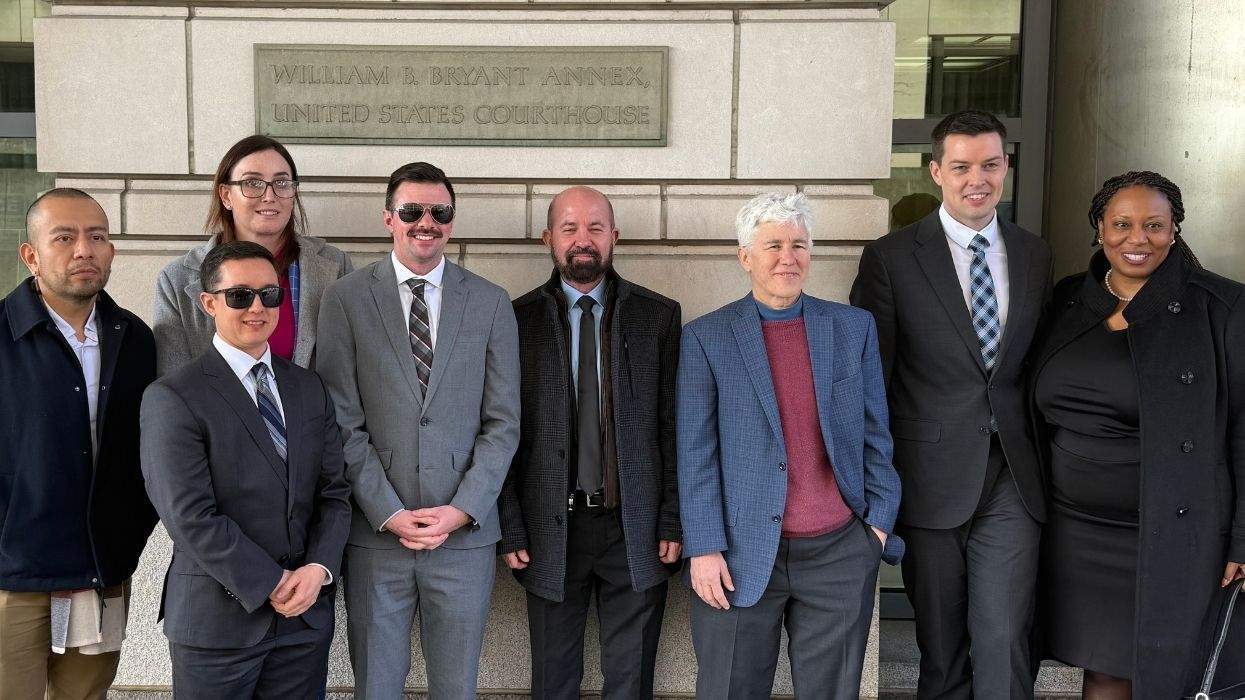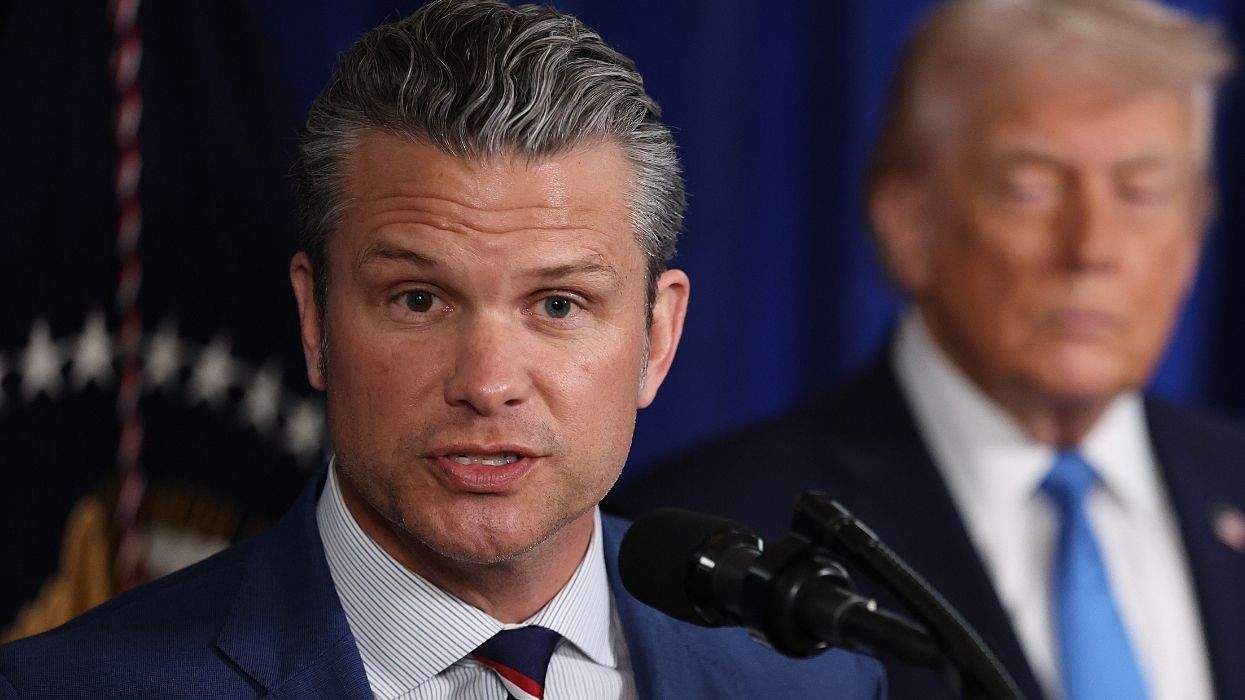The Trump administration wants to keep secret the details of how it reached the decision to reinstate the ban on military service by transgender people.
A Justice Department lawyer argued this week, in one of the lawsuits challenging the ban, that executive privilege means the administration doesn't have to turn over the information, BuzzFeed reports. But U.S. District Judge Colleen Kollar-Kotelly, who is hearing the suit, says that privilege isn't absolute.
The Justice Department doesn't want to reveal "certain information regarding meetings or conversations the president had" before his tweet last July announcing reinstatement of the ban, according to BuzzFeed. Donald Trump tweeted that he'd reached the decision "after consultation with my Generals and other military experts." However, President Barack Obama and his Defense secretary, Ash Carter, had engaged in extensive study and consultation with experts before lifting the ban in 2016.
Kollar-Kotelly, a judge on the U.S. District Court for the District of Columbia, is hearing a challenge filed on behalf of several current and aspiring trans service members by the National Center for Lesbian Rights and GLBTQ Legal Advocates and Defenders. She has blocked the ban while the case proceeds, as have judges hearing three other suits against the ban.
The challengers want the administration to turn over information about which generals and experts were consulted by Trump, and what meetings and conversations they had, BuzzFeed reports. Justice Department lawyer Ryan Parker contended that those details could be kept confidential because of the presidential communications privilege, a form of executive privilege that protects the president from having to reveal certain information regarding executive decisions. Another form of executive privilege, the deliberative process privilege, protects less information, and even the presidential communications privilege is not absolute, BuzzFeed notes.
"You've taken the position, it seems to me, or almost the position that it's an absolute privilege, and that's not correct," Kollar-Kotelly said in a summary of a phone conference with Parker, according to BuzzFeed. She added later, "If you assert [the presidential communications privilege], it's presumptively so, but that is not the end of the inquiry. And the problem that I'm having is, you're not willing to have the rest of the inquiry with me." She said the information doesn't necessarily have to be given to the plaintiffs, but it should be given to her and she will decide whether to share it with the plaintiffs after determining whether it is protected by the privilege.
She finally asked Parker, "Are you willing to provide any information whatsoever about what might have transpired?" He said no. She concluded, "I will figure out how I want to proceed with this, but this is not a good way to go about this." She said she hopes to clarify matters further in a phone conference today, and she asked the lawyers on both sides to confer about exactly what documents are at issue.















Charlie Kirk DID say stoning gay people was the 'perfect law' — and these other heinous quotes
These are some of his worst comments about LGBTQ+ people made by Charlie Kirk.